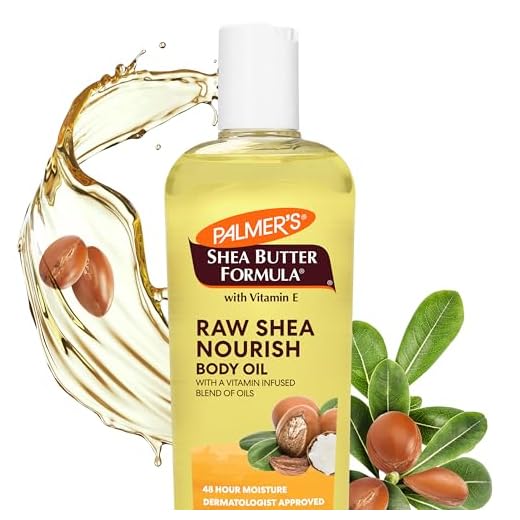







Prenatal vitamins can indeed help with skin elasticity during pregnancy. They provide essential nutrients like vitamins C and E, zinc, and omega-3 fatty acids, all important for maintaining skin strength and hydration. Vitamin C supports collagen production, vital for skin elasticity, while zinc aids in skin repair. Staying hydrated and following a balanced diet also boost your skin's resilience. While research on prenatal vitamins and skin elasticity is limited, their overall benefits contribute to your skin's health. If you're curious about more ways to enhance your skin during this time, there's plenty more to explore.
Key Takeaways
- Prenatal vitamins, containing vital nutrients like vitamins C and E, support collagen production essential for skin elasticity during pregnancy.
- Zinc in prenatal vitamins aids skin repair, maintaining strength and resilience, which can help prevent stretch marks.
- Omega-3 fatty acids found in some prenatal vitamins promote skin hydration and elasticity, contributing to overall skin health.
- A balanced diet rich in antioxidants, along with prenatal vitamins, nourishes skin from within, enhancing elasticity and texture.
- Consulting healthcare providers for personalized prenatal vitamin recommendations can optimize skin health and elasticity during pregnancy.
Understanding Skin Elasticity
Skin elasticity plays an essential role in maintaining the overall appearance and health of your skin, especially during pregnancy. As your body undergoes considerable changes, maintaining skin elasticity becomes critical to prevent stretch marks and other skin issues. Collagen and elastin fibers are fundamental components that support this elasticity, and you can boost their production through proper nutrition.
Prenatal vitamins are designed to provide the essential vitamins and minerals necessary for skin health. For instance, Vitamin C aids in collagen formation, while Vitamin E protects your skin cells from oxidative stress. Incorporating these vitamins into your routine can considerably enhance your skin's resilience. Zinc, another mineral found in many prenatal vitamins, contributes to skin integrity and healing, further supporting skin elasticity.
Additionally, staying hydrated and consuming a balanced diet rich in vitamins and minerals can amplify these benefits. Foods high in antioxidants, healthy fats, and proteins will nourish your skin from the inside out. By prioritizing nutrition during pregnancy, you're setting the foundation for healthy skin, ensuring you maintain the elasticity necessary to adapt to your body's changes.
Role of Prenatal Vitamins
Maintaining skin elasticity during pregnancy is greatly influenced by the nutrients you consume, and that's where prenatal vitamins come into play. These vitamins typically contain essential nutrients like vitamin C and E, both important for supporting collagen production. Collagen is a key component that helps your skin remain elastic, allowing it to adapt to the changes your body undergoes during pregnancy. Furthermore, a high-potency nutrient profile in prenatal vitamins, such as those found in Rainbow Light Prenatal One Multivitamin, can offer significant support for your overall health during this transformative time, ensuring you receive the necessary vitamins and minerals for both you and your baby's well-being (comprehensive nutrient profile).
In addition to vitamins C and E, prenatal vitamins often include B vitamins, which aid in energy metabolism and may enhance overall skin health. Folic acid, a fundamental element in prenatal vitamins, is linked to skin repair and regeneration, further improving skin texture and elasticity. Additionally, minerals like zinc play an important role in maintaining skin strength and resilience, essential for adapting to your body's physical transformations.
Key Nutrients for Skin Health
While you navigate the changes of pregnancy, focusing on key nutrients can greatly enhance your skin health and elasticity. Prenatal vitamins are packed with essential nutrients that play a significant role in maintaining your skin's liveliness. For instance, vitamin C is essential for collagen production, which directly supports skin elasticity. Additionally, vitamin E helps protect your skin from damage, promoting a healthier complexion. Adequate folic acid intake is important not only for fetal development but also contributes to skin health by supporting cell growth and repair, which can enhance skin resilience.
Zinc is another valuable component found in many prenatal vitamins. It aids in wound healing and helps maintain skin integrity, which can be particularly beneficial in preventing stretch marks. Omega-3 fatty acids, often included as DHA, are crucial for skin hydration and elasticity, ensuring your skin remains supple during this transformative time.
Folic acid is also key, as it supports cell growth and repair, indirectly promoting healthy skin cell turnover. Together, these nutrients work synergistically to enhance your skin health during pregnancy. Remember, maintaining adequate hydration through a nutrient-rich diet is important, as well-hydrated skin is less prone to damage and stretching. By prioritizing these nutrients, you're taking an important step toward supporting your skin's health and resilience during pregnancy.
Impact of Hydration and Diet
Hydration and diet play an essential role in ensuring your skin remains elastic and healthy during pregnancy. Staying hydrated is important; aim for at least 8-10 glasses of water daily. This helps prevent skin issues, including stretch marks, by maintaining skin elasticity. Additionally, incorporating foods rich in antioxidants, such as those high in Vitamin E supplementation, can further support your skin's health and resilience.
A well-balanced diet rich in vitamins and minerals is equally fundamental. Focus on foods high in vitamin C, vitamin E, and zinc, as these nutrients support skin health and improve elasticity. Antioxidant-rich fruits and vegetables enhance skin repair processes, making your skin more resilient during this transformative time.
Don't forget about healthy fats! Incorporating avocados and nuts into your meals provides essential nourishment that supports your skin's ability to stretch without damage. Conversely, try to avoid processed foods. They can detract from your skin health, negatively impacting elasticity and increasing the risk of stretch marks.
Skincare Practices for Expecting Mothers
During pregnancy, your skin deserves extra care to maintain its elasticity and overall health. One of the simplest ways to support this is through a balanced diet rich in antioxidants, vitamins C and E, and healthy fats. These nutrients not only nourish your body but also enhance skin repair, promoting better skin elasticity.
Don't forget to stay hydrated! Drinking at least 8-10 glasses of water daily is essential for maintaining skin elasticity and preventing dryness. Along with hydration, regularly applying moisturizing creams or oils—especially those containing shea butter or cocoa butter—can keep your skin supple and help reduce the risk of stretch marks.
Incorporating prenatal vitamins into your routine can further support your skin health. Look for those containing essential nutrients like vitamin E, zinc, and omega-3 fatty acids, as they're known to aid in maintaining skin elasticity.
Lastly, adopt gentle skincare practices. Use mild, fragrance-free cleansers and avoid harsh chemicals to preserve your skin's natural moisture and elasticity during this transformative time. By prioritizing these skincare practices, you're investing in both your skin's health and your overall well-being.
Other Factors Influencing Skin Elasticity
Maintaining skin elasticity during pregnancy involves more than just topical care; several other factors play an important role. One of the key components is hydration. You should aim for at least 8-10 glasses of water daily to keep your skin well-hydrated and support its elasticity. A balanced diet rich in vitamins C and E, along with minerals like zinc and silica, is essential for maintaining the collagen and elastin fibers that give your skin its stretchability.
Gradual weight gain is also vital. Sudden increases in weight can exceed your skin's elasticity threshold, increasing the risk of stretch marks. By managing your weight gain steadily, you can help preserve your skin's natural elasticity.
Incorporating regular exercise into your routine can enhance blood circulation, which benefits skin health and elasticity. Additionally, don't forget about topical treatments. Creams and oils enriched with nourishing ingredients like shea butter and cocoa butter can help maintain skin suppleness and support elasticity throughout your pregnancy. By paying attention to these factors, you can greatly influence your skin's ability to adapt and thrive during this transformative time.
Expert Opinions and Research
Expert opinions and recent research highlight the significant role prenatal vitamins play in supporting skin health and elasticity during pregnancy. Prenatal vitamins often contain essential nutrients like vitamins C and E, zinc, and omega-3 fatty acids, which can enhance skin resilience. Vitamin C, in particular, is vital for collagen production, a protein that helps maintain skin elasticity. By ensuring you have adequate vitamin C intake, you're promoting your body's ability to produce collagen, which may prevent excessive stretching and damage to your skin.
Zinc, frequently found in prenatal vitamins, contributes to skin repair and regeneration, further supporting skin health during this transformative time. While there's anecdotal evidence suggesting that prenatal vitamins might benefit overall skin health, substantial scientific studies specifically linking them to enhanced skin elasticity during pregnancy are still limited.
To determine the right prenatal vitamin formulation that aligns with your skin health needs and overall pregnancy wellness, consulting with a healthcare provider is essential. They can provide personalized recommendations tailored to your individual requirements, ensuring you get the nutrients necessary for both your skin and your baby's development.
Conclusion
Incorporating prenatal vitamins into your routine can be like nurturing a garden, helping your skin bloom with elasticity during pregnancy. The essential nutrients they provide, combined with proper hydration and a balanced diet, create a foundation for healthy skin. Remember, though, that every pregnancy is unique; your skin's response may vary. By embracing effective skincare practices and considering expert insights, you can cultivate a vibrant, resilient complexion as you commence on this beautiful journey of motherhood.






